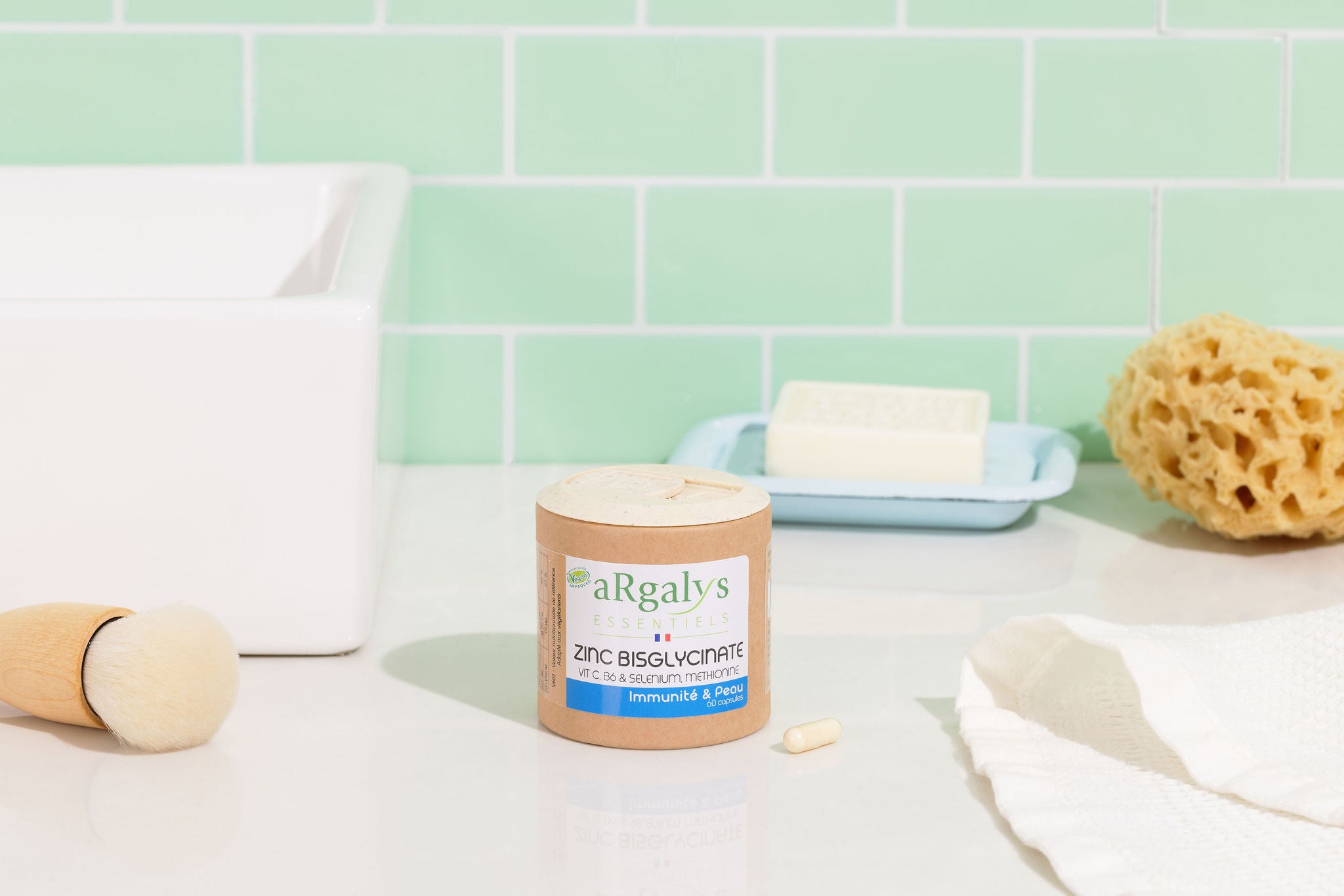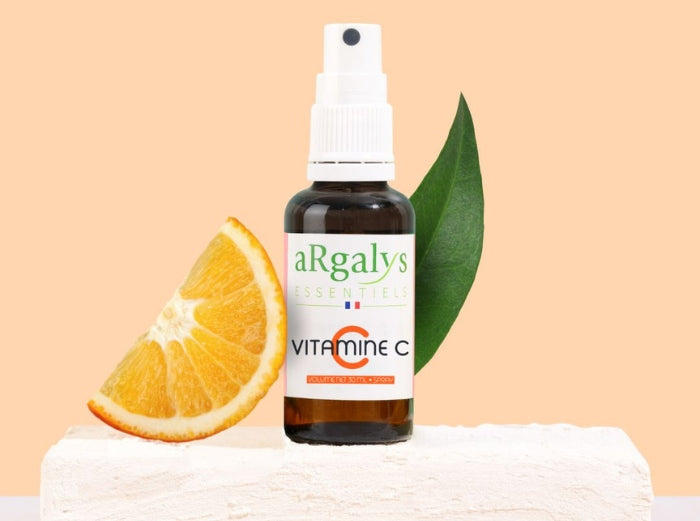What is Zinc and what is its role?
Zinc is an essential trace element , present in small quantities in the body (about 2 to 3 grams), but essential for a multitude of biological processes.
It is involved in more than 300 enzymatic reactions , ensuring the proper functioning of vital functions. Among these, the synthesis of DNA and proteins, including collagen, is particularly notable, contributing to cell regeneration and the structural integrity of connective tissues.
Zinc also plays a major role in maintaining immune function by modulating the activity of T cells and macrophages, which are essential for the innate and adaptive immune response. In addition, it is involved in the regulation of acid-base balance, as well as in the neutralization of free radicals thanks to its antioxidant properties , thus protecting cells against oxidative stress.
Its importance extends to fertility and reproduction, where it is involved in spermatogenesis in men and fetal development in women. Finally, zinc is necessary for taste function, wound healing , and hormone synthesis.
However, the human body is not able to synthesize zinc , which makes its dietary intake essential to avoid deficiencies.
How does Zinc work on skin, nails and hair?
Zinc is a key element in several biological processes essential to skin health.
It regulates the production of sebum , an oily substance produced by the sebaceous glands. Excess sebum is a major cause of acne, and several studies, such as that of Dreno et al. (2018), have shown that zinc supplementation can significantly reduce the severity of acne breakouts within a few weeks.
In addition to regulating sebum, zinc has anti-inflammatory properties that are beneficial for skin conditions such as acne, eczema, or redness. It decreases markers of inflammation by reducing the production of cytokines, molecules that amplify the inflammatory response in the skin [2].
Zinc is also essential for wound healing. It stimulates the production of collagen, a structural protein in the skin, and promotes tissue repair, thus accelerating the healing of skin wounds [3].
Finally, as an antioxidant , zinc protects skin cells from damage caused by free radicals, factors of premature aging. A study published in 2009 highlighted its ability to slow the appearance of signs of aging, particularly by preventing the formation of wrinkles [4].
By strengthening the immune response, zinc also helps protect the skin against skin infections, a crucial function in maintaining healthy skin .
What are the daily requirements for Zinc?
Zinc is not synthesized by the body and must be provided through food.
The population reference intake (PRI) recommends daily intakes of 5 mg for young children and 10 to 12 mg for adults. Requirements increase slightly for adolescents and breastfeeding women, reaching 12 to 14 mg per day.
These daily intakes represent only 0.5% of the body's zinc reserves, which may explain why zinc deficiencies are difficult to perceive, without dramatic symptoms.
Consumer studies show that the populations most likely to be zinc deficient are adolescents (most affected by acne), seniors, smokers and vegetarian consumers given the relative poverty of fruits and vegetables in zinc.
How to ensure your zinc intake, through diet or supplementation?
Maintaining adequate zinc levels relies on regular intake, as the body does not have the capacity to store it in large amounts.
Any excess is quickly eliminated through natural pathways. In an omnivorous diet, the main sources of zinc are animal products, which generally provide between 5 and 10 mg of zinc per 100 g.
Conversely, plant sources, such as vegetables and seeds, contain much less, with levels of around 1 mg per 100 g.
This low zinc content in predominantly plant-based diets explains the increased risk of sub-deficiency among vegetarians and flexitarians.
It is also important to note that the waters contain virtually no zinc, which excludes this source as a potential source.
Supplementation , whether occasional or regular, with an appropriate dosage, represents an effective solution for reaching the recommended intakes, especially for the populations most at risk.
Zinc in skin supplements
The form of zinc used in supplements is essential for optimal absorption. Zinc bisglycinate , for example, is well absorbed and better tolerated than other forms like zinc oxide, making it an ideal choice for improving skin health.
At Argalys, for our Zinc supplement, we have selected bisglycinate which is combined with other nutrients to maximize its effects. This formula combines:
- Selenium , a powerful antioxidant that protects against free radicals and supports immunity.
- Vitamin C , essential for collagen synthesis and immune support.
- Vitamin B6 , which strengthens the immune system.
- Methionine , an amino acid that improves keratin production, strengthening hair and nails, while helping to fight acne.
Thanks to this synergy of ingredients, our Zinc supplement is perfectly formulated to support the health of skin, hair and nails in an effective and natural way.
Bibliography:
- Dreno, B. et al. (2018). “Zinc and acne: Clinical evidence and mechanism of action.” Dermatologic Therapy .
- Burlando, B., et al. (2020). “Zinc and Skin: A Brief Overview of Its Role in Dermatology.” Journal of Inflammation Research .
- Lansdown, ABG, et al. (2007). "Zinc in wound healing: theoretical, experimental, and clinical aspects." Wound Repair and Regeneration .
- Fisher, GJ, et al. (2009). “The anti-aging effects of zinc supplementation on skin: A comprehensive review.” Journal of Investigative Dermatology .
- Prasad, A.S. (2008). “Zinc in Human Health: Effect of Zinc on Immune Cells.” Molecular Medicine .
 04 74 03 98 80
04 74 03 98 80










